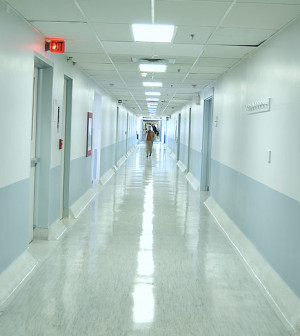- Could Your Grocery Store Meat Be Causing Recurring UTIs?
- Are You Making This Expensive Thermostat Error This Winter?
- Recognizing the Signs of Hypothyroidism
- 10 Strategies to Overcome Insomnia
- Could Artificial Sweeteners Be Aging the Brain Faster?
- Techniques for Soothing Your Nervous System
- Does the Water in Your House Smell Funny? Here’s Why
- Can a Daily Dose of Apple Cider Vinegar Actually Aid Weight Loss?
- 6 Health Beverages That Can Actually Spike Your Blood Sugar
- Treatment Options for Social Anxiety Disorder
Health Highlights: Aug. 1, 2014


Here are some of the latest health and medical news developments, compiled by the editors of HealthDay:
FDA to Regulate Medical Lab Testing
Tests developed and performed by medical labs will now be regulated by the U.S. Food and Drug Administration, the agency said Thursday.
In announcing the change, the FDA said these tests often determine critical treatment decisions, so more oversight is needed.
Tests that are sold to hospitals, laboratories, doctors’ offices and the public have been regulated as medical devices for years, according to the New York Times. However, tests developed and performed by a single laboratory have not been regulated. Until now, the agency has claimed it had the authority to do so, but had chosen not to, the newspaper reported.
There are an estimated 11,000 lab-developed tests offered by 2,000 laboratories, according to the Times. Advances in DNA sequencing have spurred the growth of personalized medicine, in which genetic lab tests are used to tailor treatments for individuals with diseases such as cancer, the agency said.
“Inaccurate test results could cause patients to seek unnecessary treatment, or delay and sometimes forgo treatment altogether,” FDA Commissioner Dr. Margaret Hamburg said in an FDA news release. The policy change “demonstrates the agency’s commitment to personalized medicine, which depends on accurate and reliable tests to get the right treatment to the right patient.”
The change has been opposed by some in the industry, who have claimed it would increase the cost of developing such tests and curb innovation, the Times reported.
But the FDA noted it would slowly implement the regulations over a nine-year period and would focus on tests where a wrong result would pose the highest risk for patients. It also said it would exempt tests for which there is no approved alternative and tests for rare diseases, the Times reported.
Copyright © 2026 HealthDay. All rights reserved.










